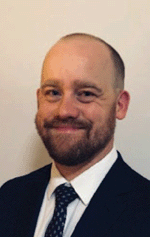Hydrate risk management at end of field life: opportunities to maximise recovery
Shane A. Morrissy A , Asher J. Mortimer A and Preben Nielsen A BA Wood, Level 1, 240 St Georges Terrace, Perth WA 6000, Australia.
B Corresponding author. Email: preben.nielsen@woodplc.com
The APPEA Journal 60(2) 646-649 https://doi.org/10.1071/AJ19089
Accepted: 27 February 2020 Published: 15 May 2020
Abstract
Hydrate management is a pervasive challenge for the offshore oil and gas industry. The consequences of a hydrate blockage in a flowline can be significant due to deferred production and additional expenditure to remediate a blockage. A common hydrate management strategy for gas-condensate systems is to avoid hydrate formation using a thermodynamic inhibition strategy. Towards end of field life, costs associated with inhibiting produced water can increase OPEX and CAPEX. The reduced production and increased costs associated with hydrate avoidance can create economic pressure to discontinue production. An alternative to this is to consider a commercial risk-based hydrate management strategy, which can result in considerable OPEX and CAPEX savings, making marginal developments economic. A case study on the adoption of a successful risk-based hydrate management strategy is presented. The goal was to maximise production from a declining asset to deliver incremental business value. Historically a hydrate avoidance strategy had been used; to continue with hydrate avoidance would have needed further capital outlay to manage the produced water from the declining reservoir. It was determined that during normal operation, hydrate risk could be managed without the need for continuous injection of a hydrate inhibitor. Further, in the event of an unplanned shutdown, where the hydrate risk is greater, it was also demonstrated that the production system could be restarted with minimal intervention.
Keywords: gas hydrate, hydrate management, uninhibited.

In 2018, Shane Morrissy joined Wood as a Flow Assurance Consultant. Shane has been involved in the development of hydrate risk management strategies for production systems during steady-state and transient operations. Shane has worked in projects across Concept to FEED and has recently contributed to commissioning scope, demonstrating feasibility of various commissioning options for a tieback into a production system. Shane graduated from the University of Western Australia in 2018 with a Doctorate in Chemical Engineering. Working in the discipline of flow assurance, he researched natural gas hydrate formation in pipelines with a focus on the development and deployment of environmentally-friendly low dosage hydrate inhibitors for the Australian market. An international patent has been filed as a result of his research. |

Asher Mortimer graduated from the University of Western Australia with a Bachelor of Science (Chemistry) and a Bachelor of Engineering with Honours (Chemical and Process Engineering). Since graduation, Asher has gained over 10 years of flow assurance experience covering a diverse range of projects from early concept to start-up, black oil to gas/condensate and North Sea to Australia. Asher has been involved in several world-class projects providing technical expertise as a consultant and in integrated, multi-discipline teams. Asher is currently a Senior Flow Assurance Consultant with Wood. |

Preben Nielsen is the PMO and Business Development Manager for Wood’s Intelligent Operations group in Australia with over 15 years of experience in the oil and gas, aerospace and mining industries. Preben graduated from the University of Western Australia with Bachelor degrees in Science (Physics and Applied Mathematics) and Engineering (Mechanical Engineering) and the University of California, Irvine with a Master of Science (Aerospace Engineering). His experience encompasses systems engineering, flow assurance, process engineering, multiphase flow, upstream processing and operations, project management, business management and contract administration. |


